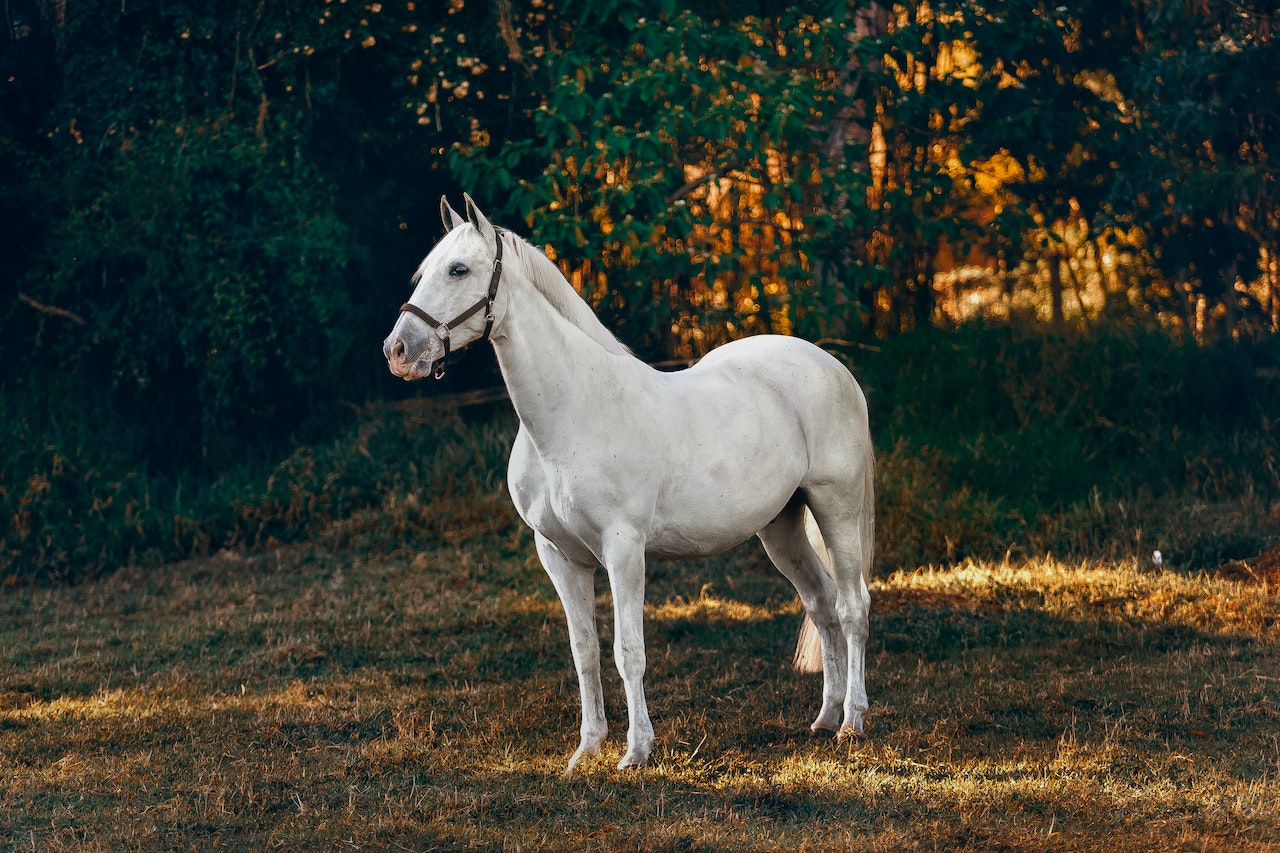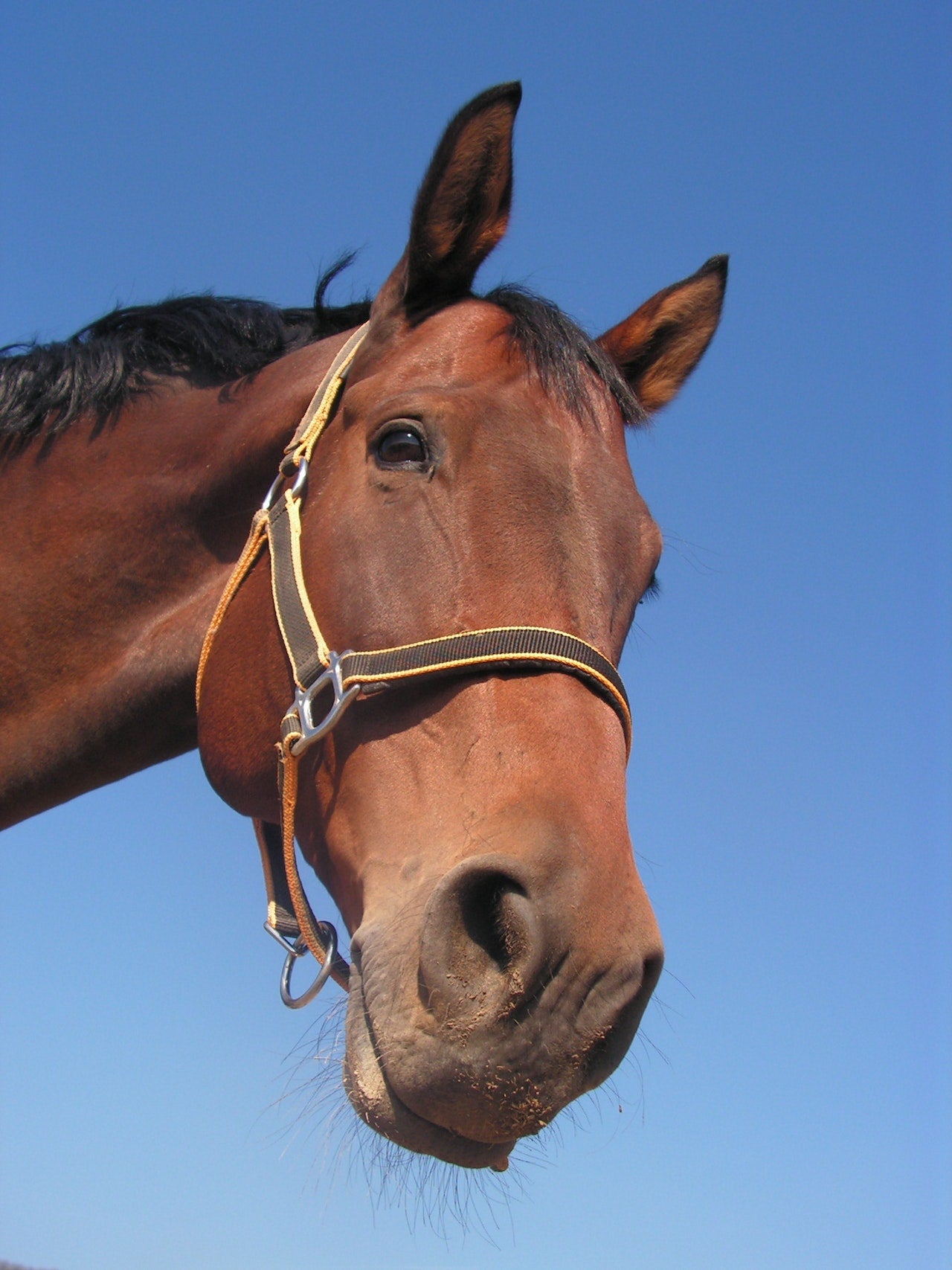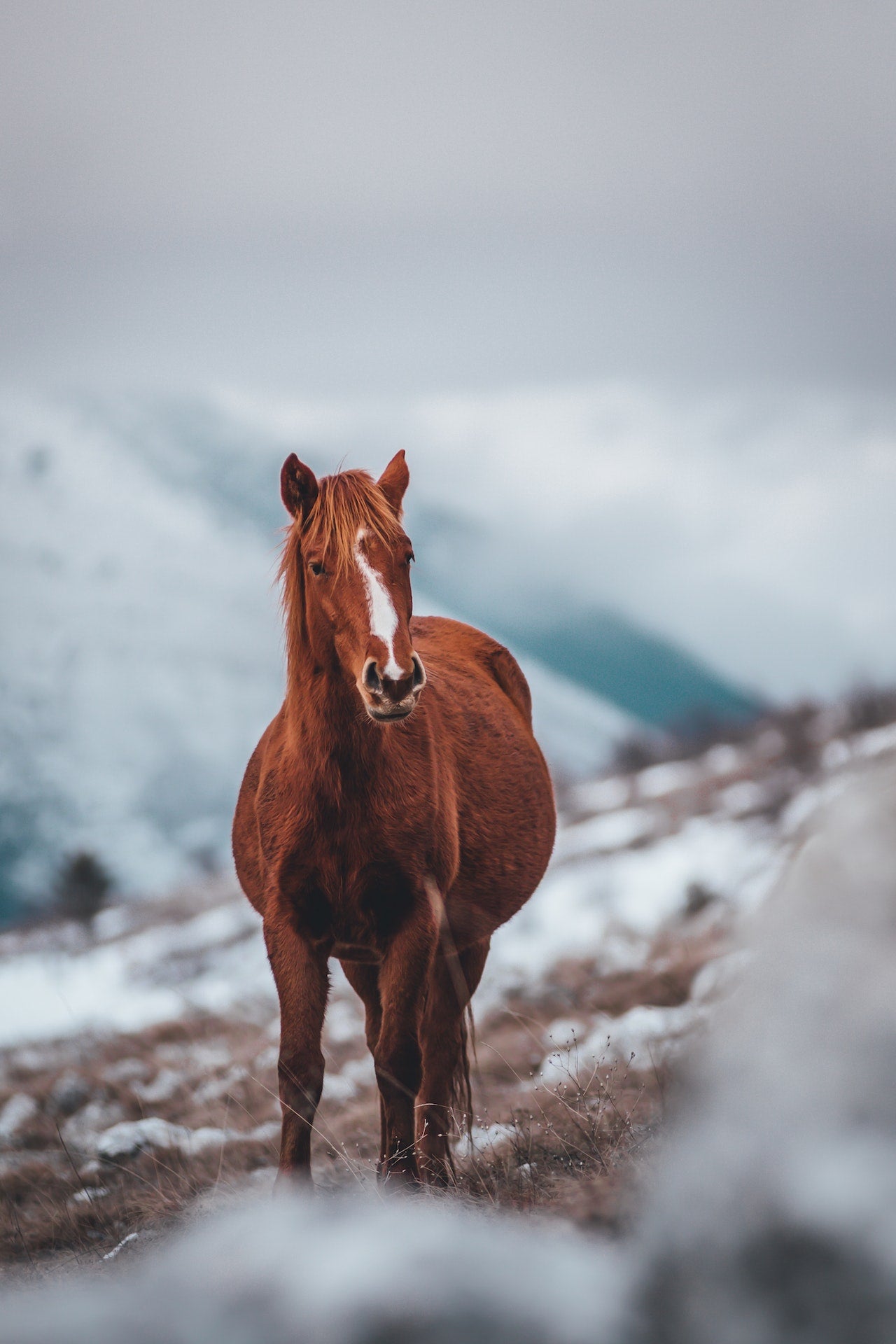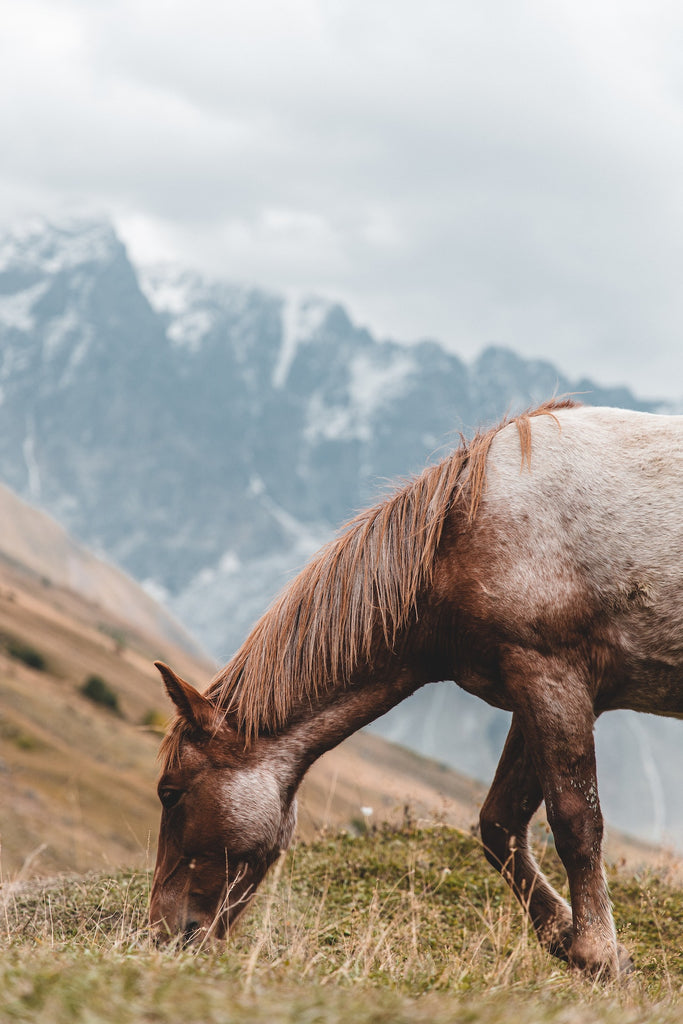
Wheat: A Grain of Consideration in Equine Diet
A healthy diet is essential for giving our equine friends the best nourishment possible. To maintain their health, performance, and general well-being, horses need a specially formulated combination of vital nutrients. While forage is the main component of their diet, grains are frequently added to satisfy certain dietary requirements. Wheat is one such grain that usually grabs the interest of horse owners.
In this article, we examine the issue of feeding wheat to horses, looking at its nutritional makeup, advantages, and drawbacks. While adding wheat to a horse's diet might be beneficial, it is essential to know how to do it safely and in a balanced way to maintain their best health.
Join us as we explore the possible advantages of including wheat in a horse's diet, from adding more calories and energy to improving palatability. Let's explore the world of feeding wheat to horses and see how it might improve their general nutrition and well-being.
Can Horses Eat Wheat?
Yes, wheat is safe for horses to consume. Horses can consume wheat, which is a major element in horse feed. It is frequently used in commercial horse feeds designed to provide horses with the necessary nutrients. However, it's crucial to remember that horses shouldn't consume wheat in big quantities or as their main source of nourishment.
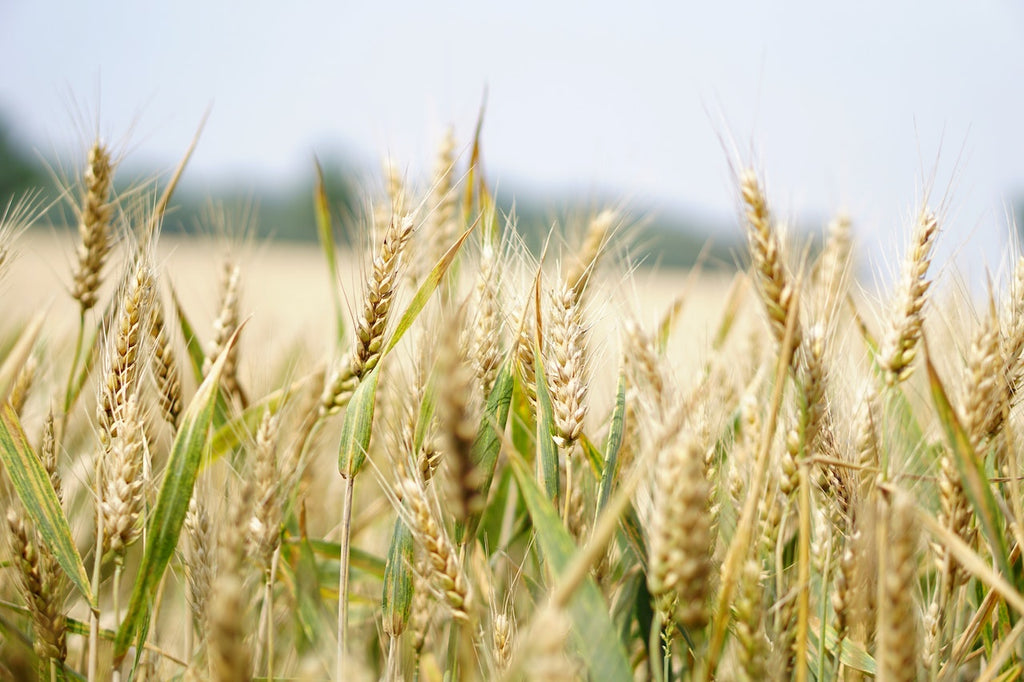
About Wheat
Wheat is one of the most extensively grown cereal grains and has long been a mainstay of human diets. It is a member of the Poaceae family of grasses and belongs to the Triticum genus. Wheat is primarily farmed for its edible seeds, which are frequently crushed into flour to make a variety of foods including bread, pasta, pastries, and morning cereals.
The bran, endosperm, and germ are the three primary components of wheat grains. The outer layer of protection, or bran, is made up of nutritional fibre, vitamins, and minerals. The largest component, the endosperm, is mostly made of starch, which provides energy. The innermost component, the germ, is abundant in vitamins, minerals, and good fats.
Wheat is an excellent source of carbohydrates from a dietary standpoint, giving humans as well as animals energy. Although the quality of the protein varies amongst the many wheat kinds, it also includes some protein. Wheat has no cholesterol and is quite low in fat.
Introducing Wheat into Horses’ Diet
Factors to Consider
Age and Activity Level
Based on their age and degree of exercise, different horses have different dietary demands. Horses who are young, growing, pregnant, or nursing, and horses used for performance may have higher energy needs than horses that are older or less active. It is crucial to evaluate the particular nutritional requirements of the concerned horse and see if adding wheat fits those criteria.
Existing Health Condition
Dietary limitations or special nutritional requirements may be necessary for horses with certain medical diseases, such as metabolic disorders (such as Equine Metabolic Syndrome or Cushing's disease) or insulin resistance. Wheat, a grain with a greater starch content, may not be suited for some horses since it might worsen their condition or cause an imbalance.
Digestive Consideration
Due to their delicate digestive systems, horses are susceptible to digestive problems like colic or laminitis when their diet is abruptly changed or given in excess amounts of any feed. Watch the horse's reaction as you progressively introduce wheat to the diet, starting with modest amounts.
Proper Processing
Milling
The process of milling reduces the size of the wheat grains, enhancing the availability of nutrients for horses and enhancing their capacity to digest the grain.
Rolling
The process of rolling the wheat grains flattens and cracks the outer coating, making it simpler for horses to chew and digest.
Balancing with Other Dietary Components
Forage
The staple of a horse's diet should be forage, such as hay or pasture. It offers necessary fibre, encourages healthy digestion, and benefits gut health in general.
Protein Source
While wheat does include some protein, it could not have all the critical amino acids that horses need. Include extra sources of protein in your diet, including soy meal or alfalfa.
Vitamins and Minerals
Even though wheat does include certain vitamins and minerals, it is crucial to make sure that the horse's diet is sufficiently supplied with other sources of the essential vitamin and minerals.
Nutritional Benefits of Wheat for Horses
Energy Source
Wheat is an excellent source of carbohydrates, which are an important source of energy for horses, and it can offer easily accessible energy to fulfil the substantial energy needs of performance horses or horses involved in vigorous exercise.
Essential Minerals
Minerals including phosphorus, magnesium, and zinc are present in wheat and are crucial for several physiological processes in horses. These minerals contribute to the support of the immune system, enzymatic responses, muscular function, and bone health.
Essential Vitamins
The B vitamins including thiamine (B1), riboflavin (B2), niacin (B3), and folate (B9) are among the vitamins found in wheat. These vitamins are crucial for cellular metabolism, energy generation, and general health.
Contains Protein
Wheat nevertheless has a significant quantity of protein, despite not being as rich in protein as certain other cereals like oats or soybean meal. Horses need protein for skeletal muscle growth, tissue healing, and general growth and maintenance.
Dietary Fibre
Wheat nevertheless adds some fibre to the diet, albeit not having as much as forage sources like hay or grass. Fibre improves gut motility, helps maintain a healthy digestive tract, and can guard against digestive illnesses like colic.
Phytonutrients
Wheat may provide health advantages due to the phytonutrients it contains, including phenolic compounds and antioxidants. Reduced risks of chronic illnesses, such as cardiovascular disease and several malignancies, have been linked to these substances.
Potential Risks of Feeding Wheat to Horses
Digestive Problem
Compared to other grains, wheat has a greater amount of starches, and too much starch might disturb a horse's digestive system. The microbial equilibrium can be upset by the rapid fermentation of starch in the hindgut, which can lead to diseases like colic or laminitis. It's critical to keep an eye on how much wheat is being fed.
Gluten Sensitivity
Wheat contains gluten, a complex protein compound that some individuals, including horses, may be sensitive to or intolerant to. Digestive problems, allergic responses, or inflammation can all be signs of gluten sensitivity. Wheat should be avoided or replaced with gluten-free options for horses that have celiac disease or known gluten sensitivity.
Mycotoxin Contamination
Wheat may develop fungi and become contaminated with mycotoxins, just like other grains can. When consumed in large quantities, mycotoxins, toxic compounds produced by mould, can be dangerous to horses. To reduce the possibility of mycotoxin contamination, it is crucial to purchase high-quality wheat, keep an eye out for mould or other indicators of spoiling, and adhere to suitable storage procedures.
Concluding Words
When given in moderation and as part of a healthy diet, wheat can assist horses' nutritional needs. When processed appropriately, wheat may provide horses with important nutrients as well as other advantages. However, it is crucial to think about potential hazards and take the required safety measures.

